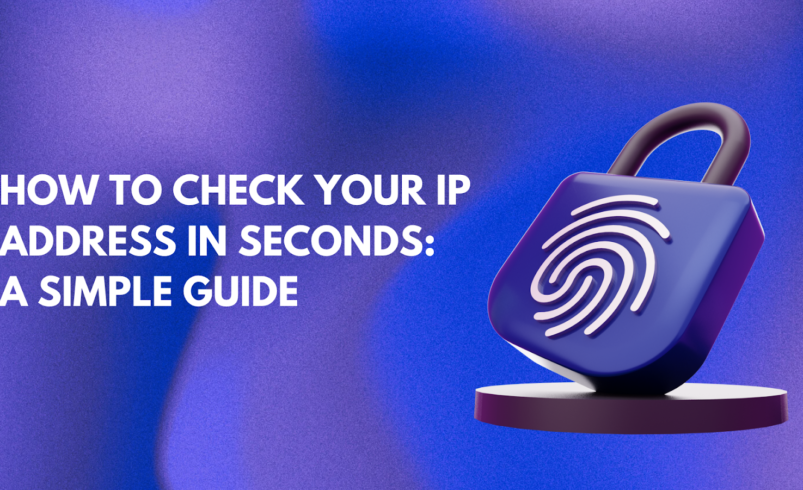Who Needs a Business Analytics Platform? The Answer Might Surprise You

Running a business without proper data insights is like driving blindfolded. You might think you’re making the right moves, but without clear visibility, you’re just guessing. A business analytics platform changes the game by turning raw data into valuable insights, helping businesses make smarter decisions, optimize operations, and increase profitability.
But who actually benefits from using one? The truth is, business analytics isn’t just for massive corporations with endless resources. Whether you’re running a small operation or scaling a growing enterprise, leveraging data can make a huge difference. Let’s dive into the types of businesses that can see the biggest impact.
1. E-commerce Stores – Know Your Customers Like Never Before
Selling online means you’re constantly collecting data—website visits, cart abandonments, purchase patterns, and more. But without a proper analytics platform, this data is just sitting there, unused.
- Personalized Marketing – Understanding customer behavior allows businesses to tailor promotions, email campaigns, and product recommendations based on past purchases and browsing habits.
- Inventory Optimization – Track what’s selling and what’s not to prevent overstocking or running out of popular items.
- Conversion Tracking – Identify where customers drop off in the buying process and improve the user experience to increase sales.
- Customer Lifetime Value (CLV) Analysis – See which customers bring the most revenue over time and adjust strategies accordingly.
- Ad Performance Insights – Optimize paid advertising efforts by identifying which campaigns drive the most revenue.
2. Restaurants & Food Delivery Services – Serving Up Smarter Decisions
The food industry is fast-paced, and staying profitable means managing costs, optimizing menus, and understanding customer preferences. A business analytics platform can help restaurants of all sizes refine their strategies.
For dine-in restaurants, analytics can track peak dining hours, menu item performance, and even customer satisfaction trends. For food delivery services, it helps determine the best delivery times, areas with the highest demand, and pricing adjustments based on demand fluctuations.
3. Subscription-Based Businesses – Reducing Churn, Increasing Growth
If your business relies on recurring revenue, analytics is crucial. Tracking subscription retention rates, customer engagement, and churn trends can help fine-tune offers and keep customers around longer.
For example, if a sudden drop-off occurs at a certain subscription renewal point, analytics can pinpoint the issue—maybe pricing is too high, or users aren’t seeing enough value. Adjusting marketing, customer service strategies, or even pricing models based on data can significantly improve retention.
4. Manufacturing & Supply Chain – Efficiency at Every Level
Manufacturers deal with countless moving parts—from supply chains to production schedules to equipment maintenance. A business analytics platform can provide deep insights into operations, ensuring everything runs smoothly.
By analyzing production data, manufacturers can predict maintenance needs before breakdowns occur, reducing downtime and saving money. It also helps optimize supply chain logistics, ensuring raw materials and products arrive on time while keeping costs under control.
5. Retail Stores – Understanding Shoppers Beyond the Sale
Retailers need more than just sales figures—they need to understand customer habits, peak shopping hours, and which promotions are driving real revenue. A business analytics platform can break down sales trends, helping stores optimize pricing, product placement, and even employee scheduling.
For brick-and-mortar businesses, foot traffic analytics help determine the best store layouts and peak staffing needs. Online retailers can refine digital marketing and product recommendations for higher conversions.
6. Healthcare & Wellness Businesses – Smarter, More Efficient Care
From medical practices to fitness centers, data can improve the way these businesses operate. Patient appointment trends, treatment success rates, and even insurance claim analytics can help healthcare providers make better decisions.
Gyms and wellness centers can track member retention, peak workout times, and popular classes to optimize scheduling and membership offerings. Even small clinics can use analytics to reduce no-show rates and streamline operations.
7. Financial Services – Smarter Risk Management
Banks, lending institutions, and investment firms rely on data to assess risk, detect fraud, and predict market trends. A business analytics platform can help financial professionals analyze spending patterns, detect anomalies, and provide better financial advice based on real-time insights.
Even independent financial advisors can benefit by using analytics to track investment performance, client behaviors, and market fluctuations to tailor recommendations.
8. Real Estate – Predicting Market Trends & Client Needs
Real estate professionals need to stay ahead of trends. Whether selling properties, managing rentals, or investing, having the right data helps make informed decisions.
By analyzing local housing trends, market demand, and pricing fluctuations, realtors can better advise clients on when to buy or sell. Property managers can track occupancy rates, rental pricing trends, and maintenance needs to maximize profitability.
9. Marketing & Advertising Agencies – Optimizing Campaigns for Maximum ROI
Marketers live and breathe data. An analytics platform helps track campaign performance, website engagement, customer demographics, and even the effectiveness of specific ad placements.
By measuring which strategies drive the most conversions, agencies can refine ad targeting, allocate budgets more effectively, and ultimately deliver better results for their clients.
10. Small Businesses & Startups – Growing with Confidence
Many small businesses think analytics platforms are only for larger companies, but that’s not true. Even small startups can benefit from tracking customer interactions, sales performance, and operational efficiency.
Whether you’re a local coffee shop or a tech startup, knowing which products or services perform best, which marketing strategies drive real engagement, and where operational costs can be optimized makes growth far more strategic.
Making Smarter Business Decisions Starts Here
Regardless of industry, one thing is clear—businesses that leverage data have a significant advantage. A business analytics platform doesn’t just collect numbers; it helps turn them into meaningful insights that drive better decision-making, increase efficiency, and boost profitability.
If you’re not already using analytics in your business, it might be time to start. Because in today’s world, making decisions without data is just guessing—and guessing won’t take you very far.




